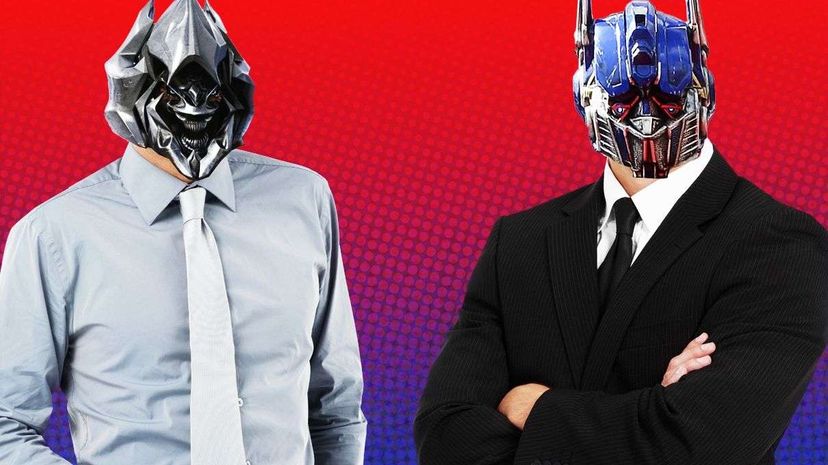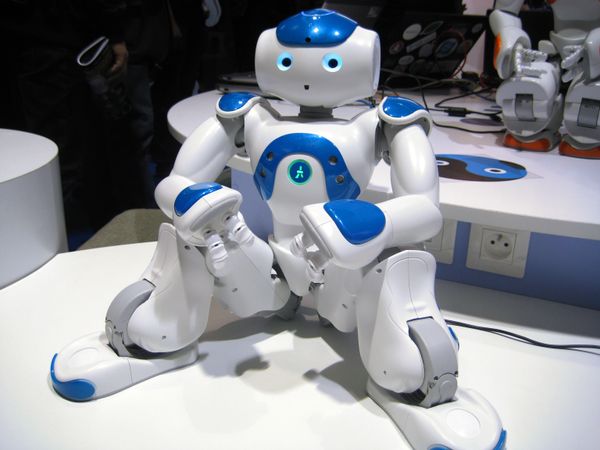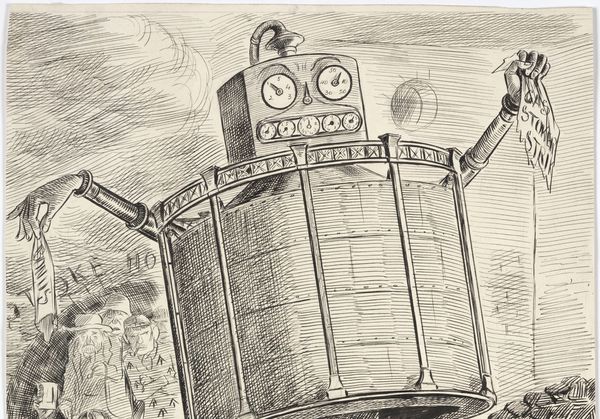
Is your boss a benevolent Optimus Prime or a tyrannical Megatron? Or ... are you stuck with a loudmouthed, narcissistic Starscream?
These are the questions that arise from a newly published chapter in Emerald Group Publishing's upcoming book "Leadership Lessons from Compelling Contexts." In the book, management professors Peter Harms and Seth Spain explore how a 1980s television program like "The Transformers" can shape our attitudes toward leaders, providing us with role models for effective leadership at work.
Advertisement
Conveniently, the impact of "Transformers" influence could be at its apex right now. Why? Because the generation that grew up with its lessons are today's decision makers. Not only did they watch Autobots and Decepticons, but they also played with the toys, engaging in role-play that defined their idea of an effective leader.
Harms recognizes the show wasn't as popular with girls, but he says, "I'm not entirely convinced this is a gender only toy. I played with lots of girls that had Transformers of their own. My daughter loves them, too."
"People our age look back on it with nostalgia," says Harms. "They want their kids to have the same sort of experiences." Because of this, "Transformers" works as a modern example of traditional folklore, with messages that both instruct and entertain, as myths and legends have done for thousands of years.
The research was drawn by analyzing each Transformers' toy box statistical characteristics in conjunction with the rhetoric of the 1984–1987 "Generation 1" cartoon show. This included 120 characters, with assessment categories grouped into cognitive ability, physical ability and quality of character.
Harms and Spain aren't the only ones advocating for Transformers as business leadership models. At least a half dozen other writers online deliberate Optimus Prime's qualities when considering their employment situation. Harms and Spain specifically argue that "Transformers" evokes four key messages about what makes the ideal workplace.
1. Power Is Shared
Successful business models show that organizations are more effective when power is shared and when no single individual dominates with his or her own selfish goals. The Autobots demonstrate this by treating each other with dignity and respect, operating in a distributed organizational structure. "Optimus solicits their opinion," Harms says. "He delegates to them. When he falls or when he's not around there's people who are readily able to take over the power. But they relinquish when he comes back."
While Autobots consider Optimus Prime to be primus inter pares (the first among equals), the Decepticon leader Megatron is clearly a tyrant. "He's created tremendous social distance between himself and his subordinates. He's overtly hostile to them most of the time."
Concentrating power like this on a single, flawed individual results in a homogeneous base of low-level followers, who sometimes sabotage their own projects out of jealousy. According to Harms, we see this in real-world organizations with insular and narcissistic leaders, who make poor decisions because they don't receive timely, accurate feedback from their followers. Ultimately, it results in low morale.
"You don't see everything falling apart with the Autobots," Harms says, "because everyone is empowered with the mission, and they're part of the process. They ended up being a much more cohesive group."
2. Leaders Are Exceptional Individuals
In their own ways, both Megatron and Optimus Prime are exceptional individuals. The former's authoritarian style is reflected in his brutal strength while Prime is known for his benevolence, self-sacrifice and forgiveness.
Real-world research shows that teams tend to select extraordinary individuals to lead them. This includes physical factors such as height and weight, as well as intelligence. These qualities signal the ability of a leader to contribute to a group's survival, in addition to their prior success.
3. Intelligence Is Important
Of the qualities that make an individual extraordinary, intelligence is often rated the highest in leaders. Or, seen from Megatron's perspective, "It's just such ignorance that relegates you to the ranks of underlings, Starscream!"
Harms explains that Megatron himself didn't have to be super-brilliant. He only had to be the smartest one on his team ... and ambitious enough to come up with a new plan for taking over the world every week.
When talking about intelligence though, Harms means an aggregate of experience, knowledge and the ability to learn and make good decisions based on the facts. Such cognitive ability is reflected in Optimus Prime's wisdom. Unlike Megatron however, Prime acknowledges that "Sometimes even the wisest of man or machine can make an error."
4. Followership
Finally, the authors turn to Thomas Sy's 2010 model of "followership" to show how the Autobots demonstrate a cohesive organization. Harms describes this as subordinates demonstrating leadership when they are not officially imbued with that type of power. A team functions well when it has people with three positive traits: industry, enthusiasm and loyalty. Autobots like Wheeljack, Ratchet, Perceptor and Jazz demonstrate these characteristics. They're presented with unique interests, viewpoints and their own thoughts on tactics and strategy.
Even the Decepticons have positive followers like Shockwave, a subordinate Megatron left in charge of Cybertron, who does his job for thousands of years without question. But most Decepticons exhibit negative followership qualities like conformity, insubordination and incompetence. Harms interprets conformity as when bad things happen in organizations because people just go along with them. "You can have these terrible leaders," he says, "but like a lot of the major scandals we see with corporate life or even world politics, it is because the followers went along with someone's crazy or negative idea without questioning them."
Till All Are One
So how do you change a leader like Megatron?
"It's always easier to do the expeditious thing, take your rewards, exploit people, yell, scream and be difficult," Harms says. So he recommends leaders should think about what they would do if a child were watching them.
"Would you be the good guy or the bad guy? If your job was a cartoon, would people be cheering for you? Or booing?"
Harms argues that doing the right thing and being mindful, reflective and considerate of other people takes more time and effort. Especially since every leader is important to their organization, and their decisions can make or break the teams they lead. Otherwise you end up with a dystopian, burned-out husk of a planet like Cybertron for a workplace.
Advertisement


